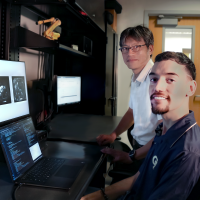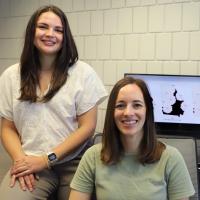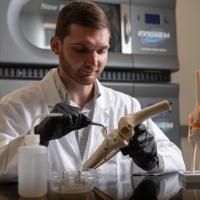4 min read
3 min read
3 min read
7 min read
3 min read
5 min read
4 min read
4 min read
2 min read
Chaouki Abdallah, Georgia Tech's executive vice president for Research (EVPR), has been named the new president of the Lebanese American University in Beirut. Abdallah, MSECE 1982, Ph.D. ECE 1988, has served as EVPR since 2018; in this role, he led extraordinary growth in the research enterprise. Through the work of the Georgia Tech Research Institute, 10 interdisciplinary research institutes (IRIs), and a broad portfolio of faculty research, Georgia Tech now stands at No. 17 in the nation in research expenditures.
4 min read















